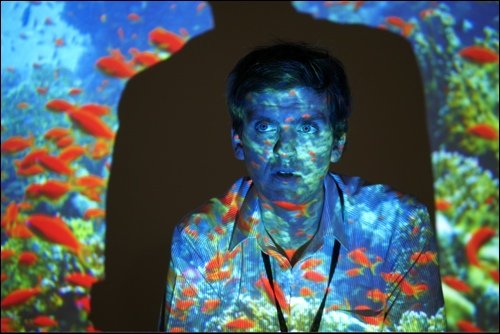A Play For Me, A Reality For Many


Last Friday I watched the most excellently produced theatre production titled ‘A Few Man Fridays' (above). The plot line is of an ex-rasta in London, Prosper, seeking his history and family heritage to only find out there is little hope of returning to the place called home. As he searches for his ‘roots' the secrets of history hidden for so many years, come to life to reveal what really happened in Diego Garcia, Indian Ocean.
Diego Garcia was part of ‘Lemuria'- the mountain range between Africa and Asia when the world was once one. As the land masses separated, the peaks of the mountains remained above water to form the islands in the Indian Ocean as the mass sunk beneath sea level. For generations, on Diego Garcia, there was a coconut plantation where the men picked the coconuts, the women peeled them and the children helped. The men then went out fishing. There was no cash economy but they were paid in wine and could exchange with those who wanted more. They were close to their dogs and had very tight knit families. Little did they know, they would one day have to leave paradise.
Forced From Home
In the 1960s, plans had been made by the US and United Kingdom to have the island evacuated to establish a US military base there. However, the plan was troublesome considering it was not a deserted island and a valid reason would have to be given to the United Nations. So the plan was set in motion. It was claimed that the people were a floating population of migrant workers from the Seychelles and Mauritius and therefore, they would be returned to the islands.
The first sign of this plan were workers leaving on holiday to Mauritius, who were then unable to book journeys back, leaving those left behind wondering why they had not yet returned. In taking steps to evacuate the island, the dogs were gassed to death and the people were threatened that they would suffer the same fate if they resisted.
In the late 1960s, the boat came. The Nordvaer carried people in cages to the Seychelles, dropping some Chagossians there before continuing the journey to Mauritius where the majority of people were dumped. Upon arrival they were made to sign a document renouncing their right to return, but with most of them illiterate, they did not understand what they were signing and used their thumbprints. They were given £3000 as compensation for being removed from their homes. They were treated as second class citizens in Mauritius and called ‘ilois', remaining in marginalised communities.
British Citizens
One thing that was conveniently forgotten was that the Chagossians were British citizens due to the Chagos being a British colony. Many applied for British passports and moved to the United Kingdom to try and enforce their common law right to return home. The case has gone all the way to the House of Lords and now proceeds to the European Court of Human Rights. However, hope remains dim as the area has been made a marine protection area to allow the reef to flourish, and people would be prevented from fishing in the area. Indeed, in the play a young man shouts to a marine biologist: "Who is more important? The turtles or the people?"
The most poignant and powerful part of the play for me was a woman shouting at her husband: "Let's go home! At least we can go home!" I shivered as I thought of how I would feel if I was told that I could never return to the Seychelles.
A scary line of thought but a reality for so many Chagossians.
Angelique is a student blogger for Foreign Students. Originally from the Seychelles, she is currently a Law student at the University of London. You can read all her older posts here.








